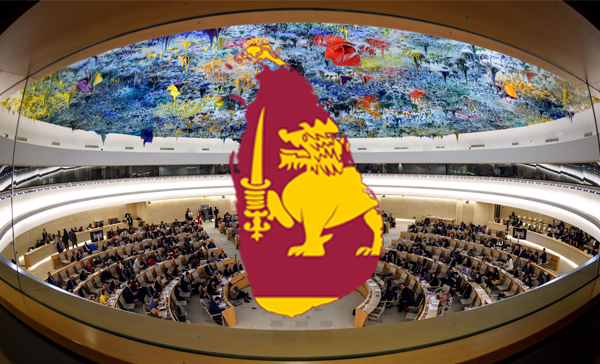By: Staff Writer
October 07, Colombo (LNW): The United Nations Human Rights Council (UNHRC) has adopted a resolution calling on Sri Lanka to strengthen reconciliation, accountability, and human rights protections, despite the country’s outright rejection of the measure. The resolution, titled A/HRC/60/L.1/Rev.1, was passed without a vote during the 41st meeting of the council’s 60th session, signaling strong international concern over ongoing governance and human rights issues in Sri Lanka.
The initiative originated on September 10, 2025, when a core group of countries—including Canada, Malawi, Montenegro, North Macedonia, and the United Kingdom—submitted a resolution urging Sri Lanka to take concrete steps toward national reconciliation. A revised draft, presented on October 1, was backed by a coalition of 30 countries spanning Europe, North America, and Oceania, reflecting widespread global support for addressing Sri Lanka’s human rights challenges.
Central to the resolution is the call for the Sri Lankan government to devolve political authority and ensure the effective functioning of provincial councils, particularly in the Northern and Eastern provinces. The measure stresses that such reforms are crucial for fostering reconciliation and allowing all citizens to fully enjoy their rights under the thirteenth amendment to the Sri Lankan Constitution.
The resolution also emphasizes the urgent need for impartial investigations into human rights violations and breaches of international humanitarian law, advocating for the meaningful participation of victims and their representatives. Where appropriate, it calls for the prosecution of those responsible, underscoring the international community’s insistence on accountability.
In addition, the resolution addresses broader civil society concerns, including the safety of journalists, human rights defenders, and activists, particularly women. It demands the release of lands held by the military or state actors and calls for fair, transparent resolutions of disputes over religious, archaeological, and conservation issues.
The mandate of the UN Office of the High Commissioner for Human Rights in Sri Lanka is proposed to be extended, with reports on progress requested at future sessions. The resolution also welcomes Sri Lanka’s commitment to repeal the controversial Prevention of Terrorism Act, highlighting ongoing concerns over disproportionate detentions of Tamil and Muslim communities. It urges a moratorium on the Act’s use until its repeal and insists that any new anti-terrorism legislation comply with international human rights norms.
Similarly, the draft resolution acknowledges Sri Lanka’s pledge to amend the Online Safety Act, expressing concern over broadly defined offences and insufficient judicial oversight. It encourages swift reforms to safeguard freedom of expression in line with international standards.
Analysts say the UNHRC resolution places Sri Lanka at a critical crossroads. While adoption does not impose binding legal obligations, it strengthens international scrutiny and could influence foreign aid, investment decisions, and bilateral relations. The government faces growing pressure to demonstrate tangible progress in reconciliation and human rights, failure of which may further isolate the country diplomatically and economically.
With the global community watching closely, Sri Lanka’s next steps in implementing these reforms will likely define both its international standing and its domestic social cohesion for years to come.
